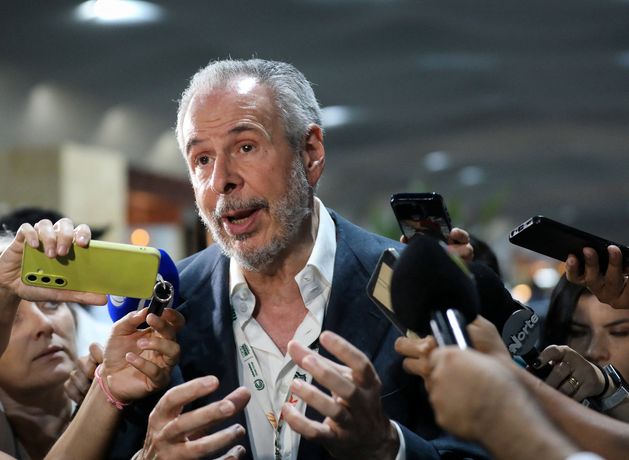Climate Minister Darragh O’Brien said Ireland supports the decision by the EU to accept the Cop30 presidency text – but criticised the fact that it “fails to include a credible roadmap for the phase-out of fossil fuels”.
“This was not a choice made lightly and our support is underpinned by profound concerns: the presidency text falls short of meaningful ambition on the most critical issue of our time – reducing emissions to mitigate the worst effects of climate change,” said Mr O’Brien.
“In particular, it fails to include a credible roadmap for the phase-out of fossil fuels, a step more than 80 countries, including Ireland, called for earlier this week. Nevertheless, we look forward to continuing work, outside of the Cop process, with the EU and other international partners on shaping a roadmap for the energy transition and the phase out of fossil fuels.
“While we appreciate the work of the Brazilian presidency, this process is not simply about negotiating text. It is about protecting lives, protecting communities, and protecting the future.
“We owe it to the integrity of the Cop process, and more importantly to our people and our planet, to maintain the fight for a fair, effective, and ambitious global response to the climate crisis. We take that forward now for Cop31 when Ireland will be in the EU Presidency role. That work begins now.”
In securing the accord, countries attempted to demonstrate global unity in addressing climate change impacts even after the world’s biggest historic emitter, the United States, declined to send an official delegation.
But the agreement, which landed in overtime after two weeks of contentious negotiations in the Amazon city of Belem, also exposed rifts between wealthy and developing nations, as well as between those governments with opposing views on oil, gas and coal.
After the deal, Cop30 president Andre Correa do Lago acknowledged the talks had been tough.
“We know some of you had greater ambitions for some of the issues at hand,” he said.
The European Union had been the main holdout for language on a transition away from fossil fuels, but ultimately agreed to drop it after a coalition of countries including top oil exporter Saudi Arabia said it was off-limits.
“We should support (the deal) because at least it is going in the right direction,” the European Union’s climate commissioner, Wopke Hoekstra, told reporters before the deal was gaveled through. Some countries had harsher words.
Today’s agreement also launches a process for climate bodies to review how to align international trade with climate action, according to the deal text, amid concerns that rising trade barriers are limiting the adoption of clean technology.

